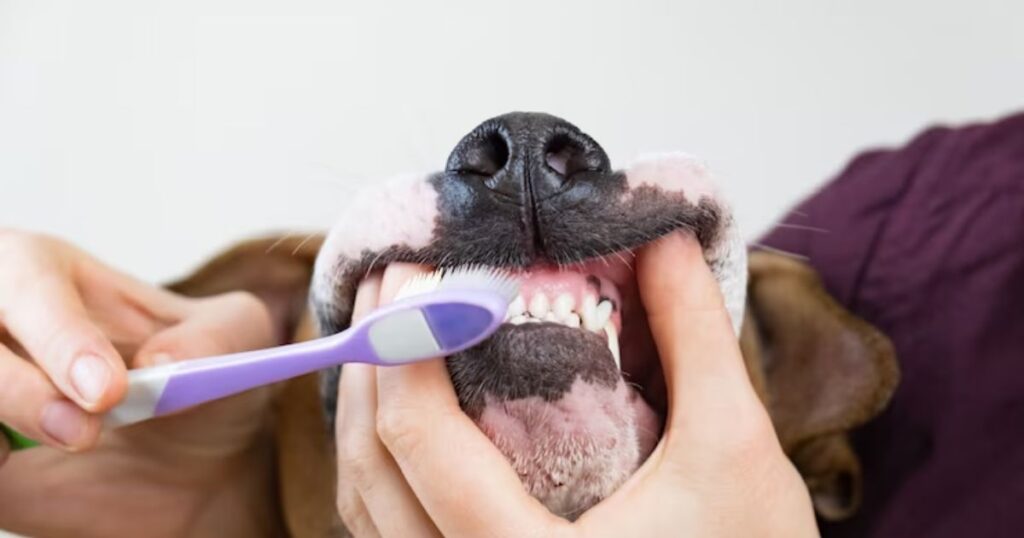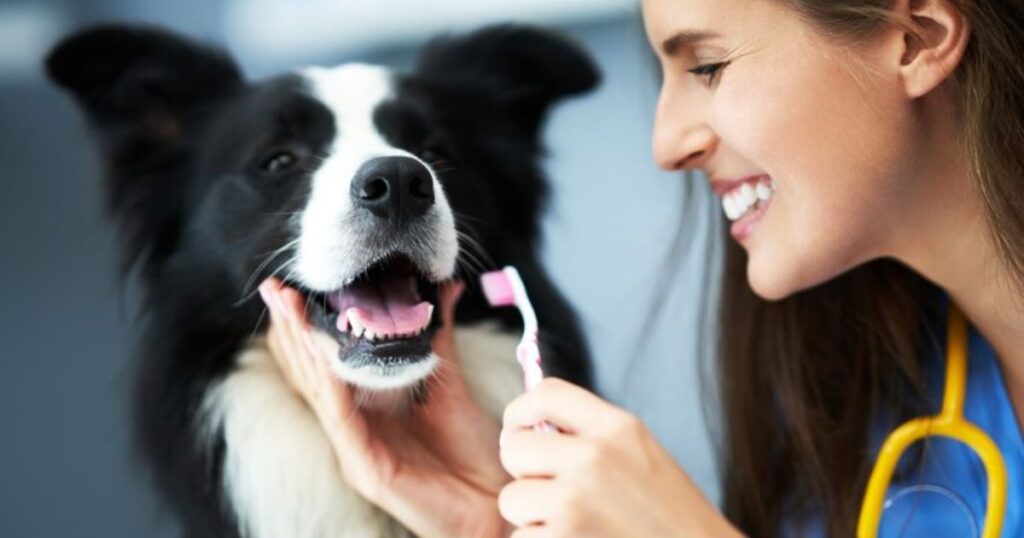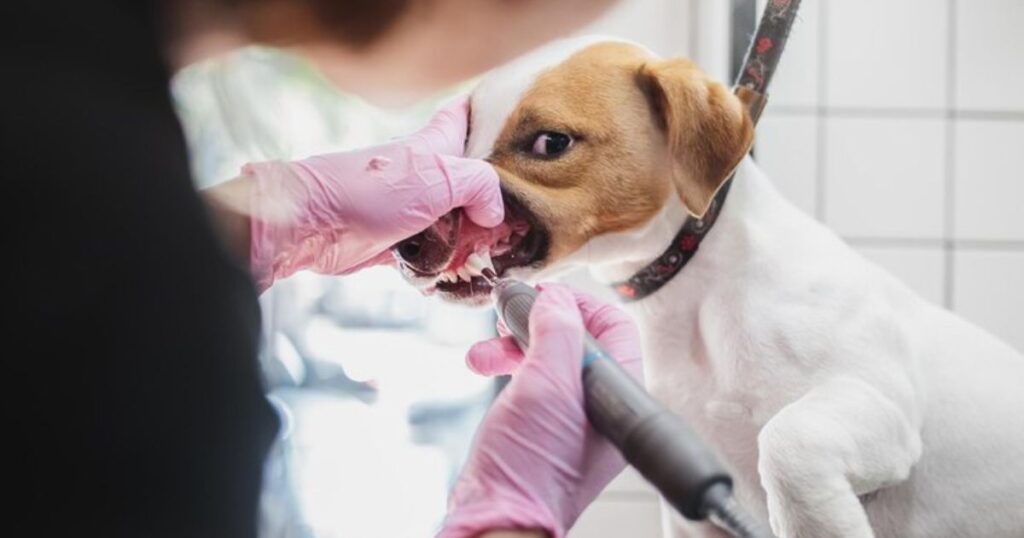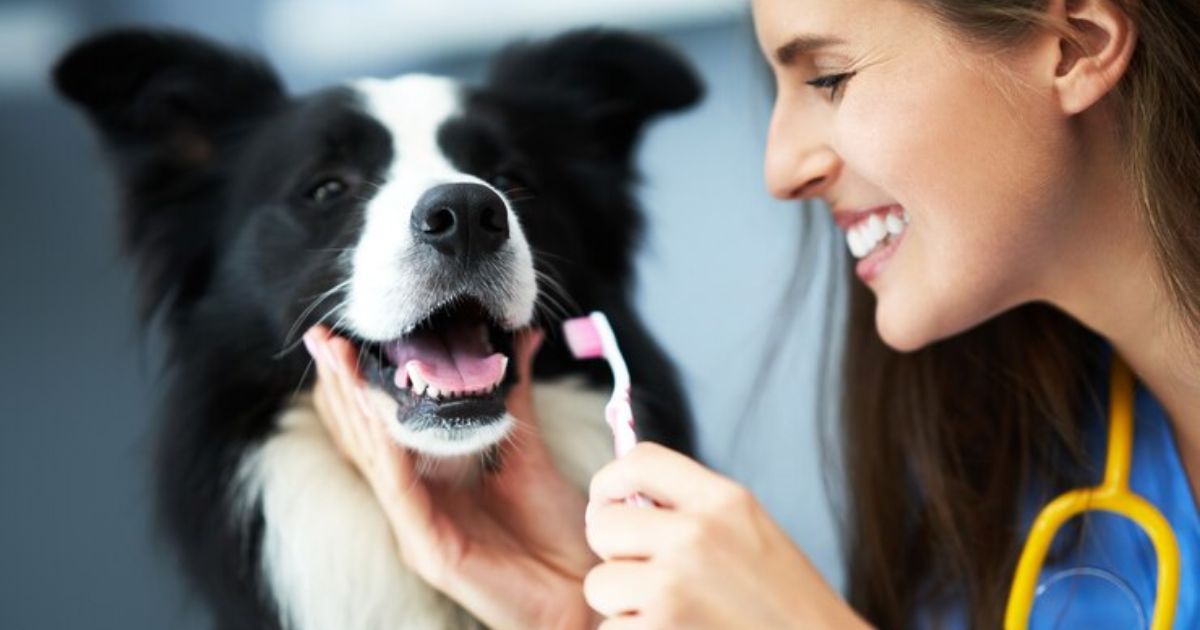Dog dentures, also known as doggy dentures or canine dental prosthetics, are specialized oral appliances designed to improve the quality of life for dogs experiencing dental issues or tooth loss. These prosthetics are crafted to fit comfortably within a dog’s mouth, addressing problems such as missing teeth, dental malformations, or injuries.
Just like humans, dogs can face oral health challenges that impact their ability to eat, play, and lead a comfortable life. Dog dentures offer a viable solution, allowing these beloved pets to regain functionality in their jaws, aiding in chewing and maintaining proper oral health. Typically made from durable materials like acrylic or polymer, these prosthetics are custom-fitted by veterinarians or specialized pet dental professionals.
While not as common as other dental treatments for dogs, dog dentures provide an alternative for cases where extraction or other interventions may not be suitable. Understanding their benefits and the process involved is crucial for pet owners seeking to improve their dog’s oral well-being.
When Do Dogs Need Dentures?

Dogs may require dentures under various circumstances:
Advanced Dental Disease
Advanced dental disease in dogs, also known as periodontal disease, encompasses a spectrum of oral health issues that progress beyond mild gingivitis. It’s characterized by inflammation, infection, and damage to the structures supporting the teeth. Plaque buildup, if left untreated, leads to tartar formation, bacterial growth, and gum recession.
As the condition worsens, it can cause tooth decay, abscesses, and eventual tooth loss. Besides affecting oral health, advanced dental disease in dogs can have systemic consequences, impacting vital organs like the heart, liver, and kidneys due to bacteria entering the bloodstream through diseased gums. Regular dental care, including professional cleanings and home oral hygiene, is crucial in preventing and managing this progressive condition in dogs.
Trauma or Injury
Trauma or injury in dogs can significantly impact their oral health, often leading to the need for dental interventions like dentures. Accidents, falls, or blunt force trauma can result in fractured, cracked, or completely dislodged teeth. Such incidents may not only cause immediate pain and discomfort but can also lead to secondary issues like infections or difficulty eating.
Dental trauma can affect a dog’s ability to chew, impacting their overall well-being. In severe cases, where teeth cannot be salvaged, dentures might be necessary to restore functionality and improve the dog’s quality of life. Timely veterinary assessment and potential dental prosthetics can aid in mitigating the effects of traumatic dental injuries in dogs.
Genetic Conditions
Genetic conditions in dogs encompass a wide range of hereditary traits or predispositions that affect their health and well-being. These conditions are passed down through generations and can impact various aspects of a dog’s life, including their physical appearance, behavior, and susceptibility to certain illnesses.
In terms of health, certain breeds are prone to specific genetic conditions, such as hip dysplasia in larger breeds like German Shepherds or Labradors, heart conditions in Cavalier King Charles Spaniels, or eye issues in breeds like Bulldogs.
Responsible breeding practices and genetic testing help mitigate these conditions, promoting healthier generations and aiding in early detection and management of potential health concerns.
Aging
Aging is an inevitable and multifaceted process that encompasses a series of physiological, psychological, and social changes in an individual over time. Biologically, aging involves a gradual decline in bodily functions, including reduced cellular regeneration, decreased organ efficiency, and a weakened immune system.
This progression often leads to increased susceptibility to illnesses and a slower recovery rate. Psychologically, aging can bring about cognitive shifts, such as memory decline or changes in processing speed. Socially, aging involves adapting to evolving roles within family dynamics and communities.
Despite its challenges, aging also presents opportunities for wisdom, personal growth, and the enrichment of interpersonal relationships, fostering a deeper appreciation for life’s experiences.
Malnutrition or Neglect
Malnutrition or neglect in dogs can profoundly impact their dental health. A poor diet lacking essential nutrients like calcium and vitamin D can weaken teeth, leading to decay, gum disease, and eventual tooth loss. Neglecting routine dental care, such as brushing and professional cleanings, allows plaque and tartar buildup, fostering bacterial growth that damages teeth and gums.
Neglecting a dog’s oral hygiene can exacerbate systemic health issues, including heart and kidney problems, stemming from untreated dental infections. Addressing malnutrition through a balanced diet and ensuring regular dental care are crucial for maintaining a dog’s overall health and preventing severe dental issues caused by neglect.
If your dog is experiencing significant dental issues or has lost teeth, consulting a veterinarian is crucial to determine if dentures or alternative dental care is needed.
Caring for Your Dog’s Dentures

Caring for your dog’s dentures involves consistent attention and a tailored approach to ensure their comfort and durability. Initially, ease your dog into wearing dentures gradually, allowing them time to adjust and ensuring a proper fit.
Regular cleaning is essential; use a soft-bristled brush and specialized dog-friendly toothpaste to gently clean the dentures, removing food particles and plaque. Avoid using human toothpaste as it can be harmful to dogs. Additionally, ensure the dentures are removed periodically for cleaning and allow your dog’s gums to breathe.
Monitor your dog’s comfort level and watch for any signs of irritation or discomfort while wearing the dentures. Lastly, schedule regular check-ups with a veterinarian to assess the fit, address any potential issues, and maintain your dog’s oral health alongside their dentures.
The Process of Fitting Dog Dentures

The process of fitting dog dentures involves several key steps to ensure proper comfort and functionality for your furry friend:
Assessment: A thorough examination by a veterinary dentist to evaluate the need for dentures and the condition of the dog’s mouth.
Impressions: Taking precise molds or impressions of the dog’s mouth to create customized dentures that fit securely and comfortably.
Measurement and Design: Using the impressions to create a detailed model of the dog’s dental structure, ensuring the dentures will match the contours of their mouth.
Trial Fitting: Trying out temporary or prototype dentures to check for fit, comfort, and functionality. Adjustments may be made at this stage to ensure a proper fit.
Finalization: Crafting the permanent dentures based on the finalized design, incorporating any necessary changes from the trial fitting.
Fitting and Adjustment: Placing the final dentures in the dog’s mouth, ensuring they fit snugly and comfortably. Further adjustments may be made to fine-tune the fit if needed.
Education for Owners: Providing guidance and instructions to the dog owner on how to care for and maintain the dentures, including cleaning and regular check-ups.
This process requires expertise in veterinary dentistry to ensure that the dog’s dentures fit well and allow for normal eating, drinking, and overall comfort. Regular follow-ups with the veterinarian may also be necessary to ensure the dentures continue to fit properly as the dog’s mouth changes over time.
Potential Challenges and Solutions with Dog Dentures
Certainly! Here’s a simplified chart outlining potential challenges associated with dog dentures and their respective solutions:
| Potential Challenges | Solutions |
| Poor Fit | – Adjustments by a veterinary dentist <br>- Use of proper materials for better fit |
| Discomfort/Rejection | – Gradual introduction to dentures <br>- Behavioral training <br>- Alternative dental solutions |
| Difficulty Eating | – Softening food or choosing easier-to-chew options <br>- Patience and encouragement during feeding |
| Maintenance | – Regular cleaning by owners <br>- Veterinary check-ups for denture adjustments or replacements |
| Speech Difficulty | – Adaptation period for the dog to get accustomed to dentures <br>- Professional guidance and encouragement |
| Allergic Reactions | – Ensuring denture materials are hypoallergenic <br>- Immediate consultation with a vet for any adverse reactions |
Addressing these challenges promptly and effectively can significantly improve the dog’s comfort and acceptance of dentures while ensuring their overall dental health.
Alternative Dental Solutions for Dogs
When it comes to addressing dental issues in dogs, several alternative solutions exist beyond dentures. Dental hygiene is crucial, and regular teeth cleaning by a veterinarian can prevent many dental problems. Dental treats, toys, and specialized diets designed to promote oral health can also aid in maintaining a dog’s teeth and gums.
Surgical options such as tooth extraction or advanced dental procedures might be necessary for severe cases of decay or gum disease. Some pet owners explore herbal or homeopathic remedies to support oral health, though these should be used cautiously and under veterinary guidance.
While dentures are an option, various preventive measures and treatments exist to ensure a dog’s dental health and well-being. Consulting a veterinarian is key in determining the most suitable alternative dental solution for an individual dog.
Benefits and Considerations of Dog Dentures
Dog dentures can offer various benefits to canine companions facing dental issues. Primarily, they aid in chewing, facilitating proper digestion and nutrient absorption. Dogs with missing teeth or oral problems often struggle to eat comfortably, impacting their overall health. Dentures can restore their ability to chew and enjoy meals, enhancing their quality of life.
These prosthetics may help maintain the alignment of remaining teeth, preventing further oral complications. However, several considerations accompany the use of dog dentures. Initial adjustment periods might be challenging for some dogs, requiring patience and encouragement.
Regular cleaning and maintenance are essential to prevent bacterial buildup and ensure the dentures remain effective. Moreover, not all dogs may adapt well to dentures due to individual preferences or specific oral conditions, making thorough consultation with a veterinarian crucial before pursuing this dental solution.
FAQ’s
Can you get false teeth for dogs?
YES! Some people may think that dentures are used on humans only, for aesthetic reasons, helping to prevent depression and low self-esteem. But it is absolutely possible for your dog to get dentures too! It is not a routine procedure, though and the risks and expense must be carefully considered.
Can dogs have replacement teeth?
Similarly, dogs may also have a difficult time eating their food when they don’t have all of their teeth present, possibly compromising their overall health. For this reason, some pet owners may choose to have their dog’s teeth replaced with dental implants.
Can dogs eat dentures?
If your dog ate your dentures, there isn’t any reason to worry. Your dentist will fix or replace them, so you can enjoy a beautiful, complete smile again.
What are dentures vs false teeth?
In all honesty, there are no differences between dentures and false teeth. They are terms that we can use interchangeably. Dentures of false teeth are artificial prosthetic appliances tasked with the responsibility of fixing dental anomalies caused by tooth decay, facial injuries, periodontal conditions, and so forth.
What do I do if my dog has no teeth?
If you have a toothless dog, or a dog missing most of his teeth, you will probably need to switch him over to a softer food. Traditional hard kibble may be too difficult for him to chew properly with only his gums, which can be both painful and dangerous.
Pros and Cons
Certainly! Here’s a chart outlining the pros and cons of dog dentures:
| Pros of Dog Dentures | Cons of Dog Dentures |
| Improved Quality of Life: Dog dentures can enhance a dog’s ability to eat, chew, and enjoy food properly. | Costly: The expense of creating and fitting dentures for dogs can be significant. |
| Address Dental Issues: Dentures can address dental problems, injuries, or missing teeth in dogs, preventing pain or discomfort. | Adjustment Period: Dogs may require time to adapt to wearing dentures, leading to initial discomfort or rejection. |
| Enhanced Oral Function: Dentures can restore oral functionality, aiding in better digestion and overall health for the dog. | Maintenance: Regular cleaning and maintenance of dog dentures are necessary to prevent complications. |
| Customization: Dentures can be tailored to fit a dog’s mouth, providing a personalized solution. | Feasibility: Not all dogs may be suitable candidates for dentures due to health conditions or other factors. |
| Long-Term Solution: When properly fitted and cared for, dentures can offer a long-term solution to dental issues in dogs. | Potential Risks: Improperly fitted dentures or lack of follow-up care can lead to oral infections or discomfort. |
Dog dentures can offer substantial benefits in enhancing a dog’s oral health and quality of life, but they also involve considerations and potential challenges that need careful attention and management.
Conclusion
Dog dentures, while an innovative concept, present both possibilities and challenges in veterinary dentistry. These prosthetics aim to enhance a dog’s quality of life, addressing issues from dental problems to jaw injuries. However, the feasibility and success of dog dentures depend on various factors, including the dog’s health, age, and the extent of dental issues.
Implementing dentures for dogs requires precise fitting, adaptation, and patience during the adjustment period. Careful consideration of the dog’s comfort and ability to adapt is crucial for their successful integration. Moreover, maintaining these dentures necessitates consistent cleaning and monitoring to prevent potential complications.
As a relatively newer field within veterinary care, ongoing research and technological advancements are likely to refine and improve dog dentures’ efficacy and accessibility. Understanding the importance of proper maintenance, including the use of specialized denture toothpaste, alongside professional guidance and attentive post-treatment care, will ensure the best possible outcome for our beloved canine companions’ oral functionality.











